‘Reps are the embodiment of the SoR’: inside the society’s trade union work
The Society of Radiographers has a proud history as a trade union. Synergy delves into the inner workings of this side of its role and meets some of the team
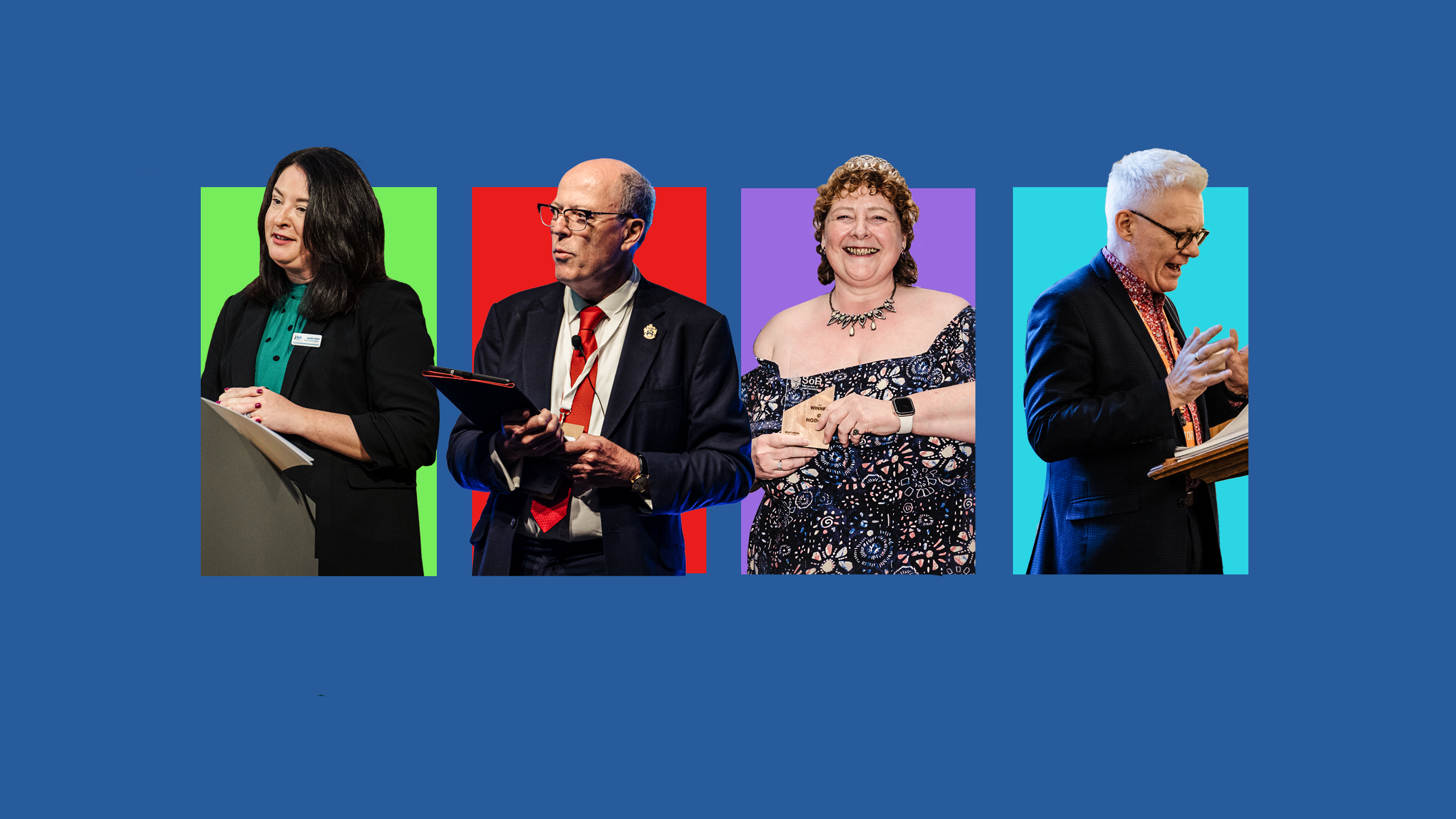
The rep plays an essential role in any trade union. Offering support, guidance and representation for members, the trade union rep serves as the voice of a union within the workplace.
As an organisation, the SoR wears many hats, including as a trade union dedicated to the radiographer workforce (alongside its position as a professional organisation). But what makes an SoR rep stand out among the crowd? Synergy went in search of the answer and took a behind-the-scenes glimpse at the work of the SoR’s Trade Union and Industrial Relations (TUIR) team.
The rep plays an essential role in any trade union. Offering support, guidance and representation for members, the trade union rep serves as the voice of a union within the workplace.
As an organisation, the SoR wears many hats, including as a trade union dedicated to the radiographer workforce (alongside its position as a professional organisation). But what makes an SoR rep stand out among the crowd? Synergy went in search of the answer and took a behind-the-scenes glimpse at the work of the SoR’s Trade Union and Industrial Relations (TUIR) team.
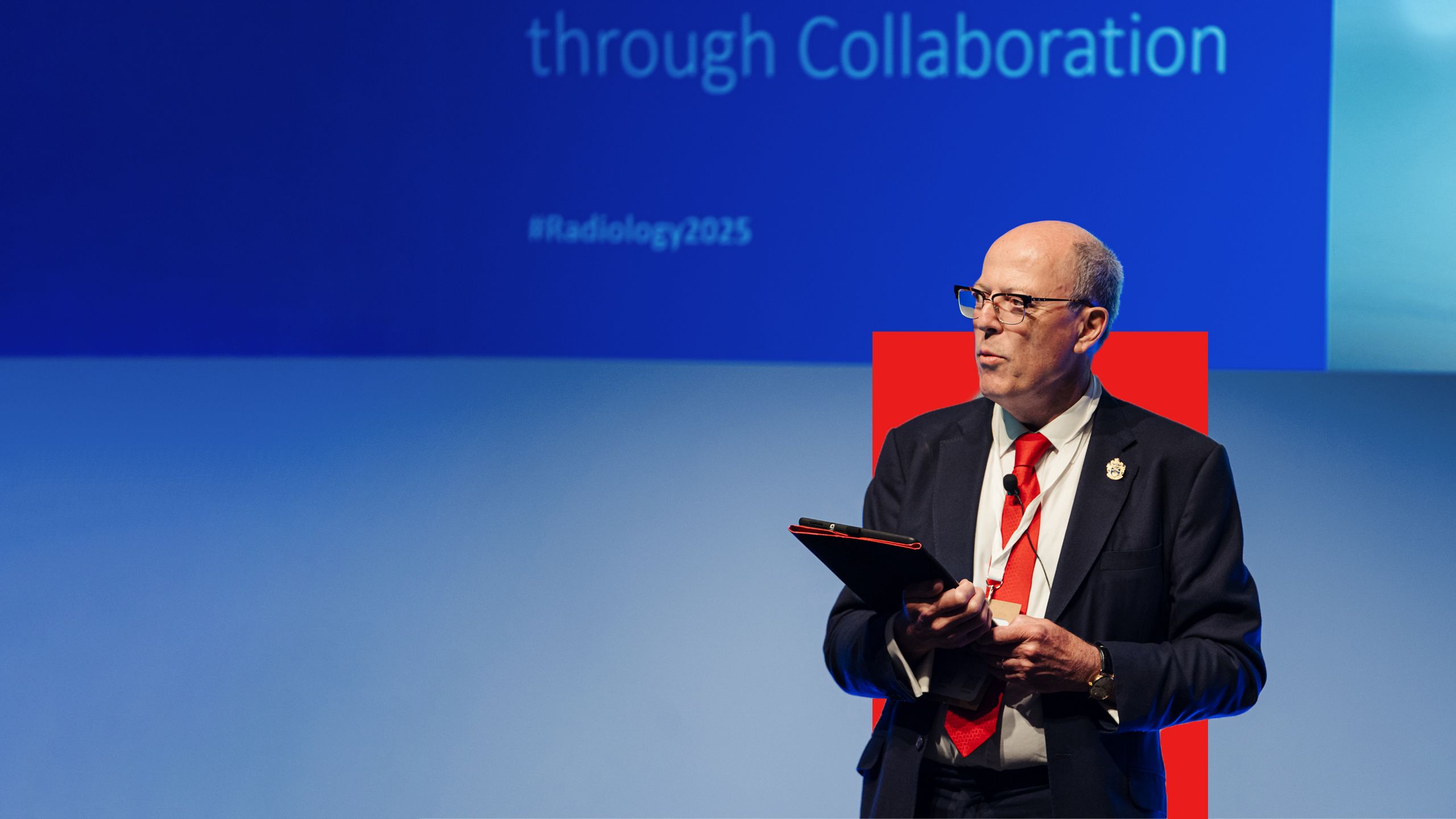
By popular demand
While the SoR was founded in 1920, it didn’t become a trade union until the 1970s. The decision to register as a trade union came from a direct call from members, says SoR CEO Richard Evans, which saw the SoR seek to become part of the special register of unions. “At that time, it was possible for professional bodies to become trade unions as part of what's known as the special register of unions, which are companies that operate as trade unions usually alongside another function, typically a professional body,” Richard explains. “This is no longer possible; the register is now closed to new applicants.”
The call from members centred on the issue of better pay and conditions for radiographers in the workplace. As part of the special register, the SoR joined organisations such as the Chartered Society of Physiotherapy and the Royal College of Nursing of the United Kingdom on the list.
The society has had many opportunities throughout the years to make its mark in history as a trade union. For Richard, one of the highlights was becoming affiliated with the Trades Union Congress (TUC) in the 1980s, which took place after a balloting process. “A very significant happening in the next decade after registration as a union was becoming affiliated with the TUC,” he continues. “That was in the 1980s and required a couple of ballots of members to see whether we wanted to join the TUC at that time.
“I remember taking part in that balloting process and also – as I was a rep at the time – publicising the ballot to members in my workplace.”
The relationship between the SoR and the TUC has gone from strength to strength in the years since. As recently as April, the SoR recommitted to the Dying to Work charter, a long-running TUC initiative that demands support for terminally-ill employees from their employers.
At a ceremony in SoR HQ, the charter was signed by Richard as well as Sam Gurney, regional secretary at TUC London, East and South East, and Rhys Martin, health and safety policy officer at the SoR.
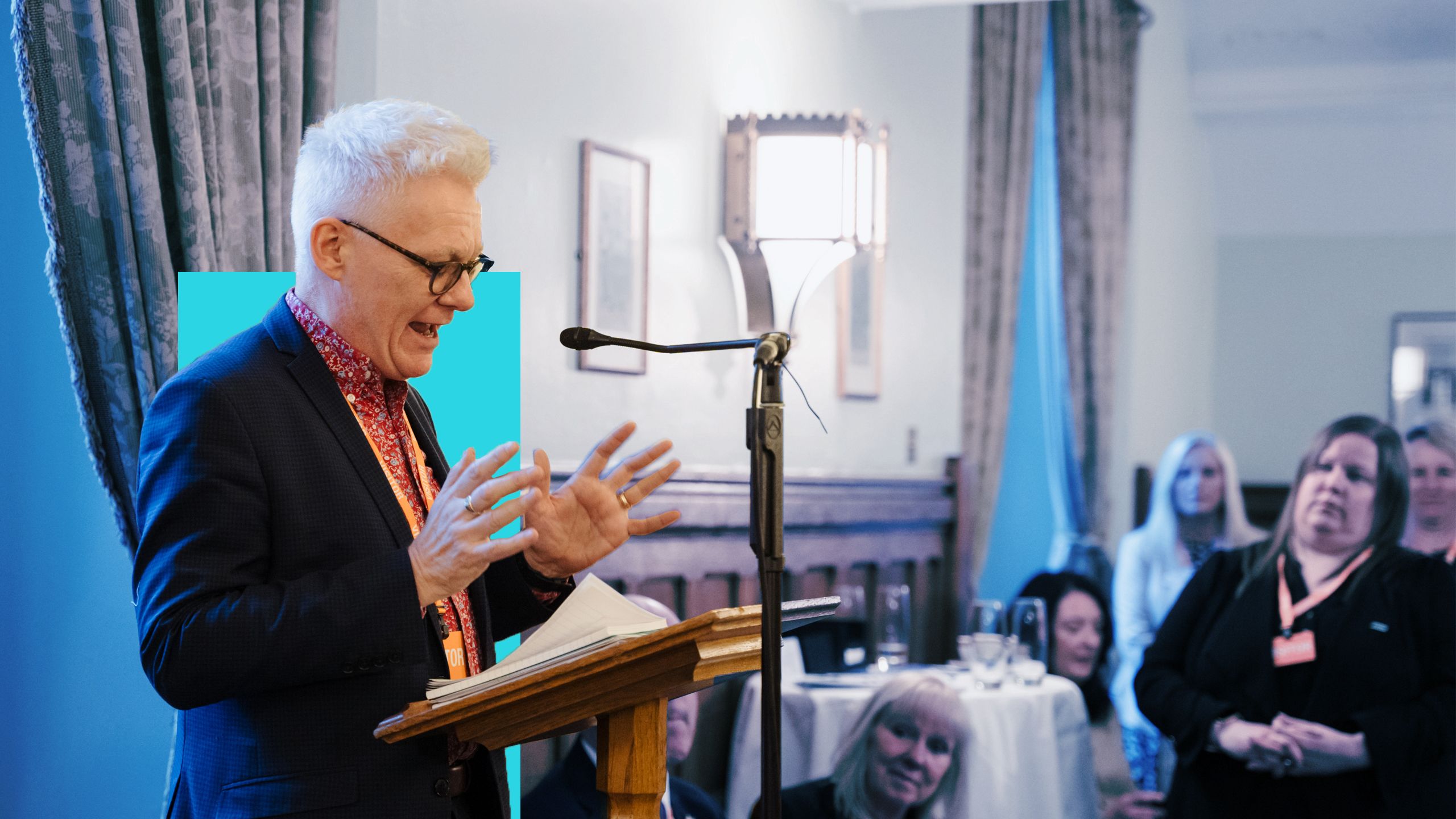
Leading the charge
Dean Rogers is the SoR’s executive director of industrial strategy and member relations. His role consists of heading, coordinating and managing all the SoR’s union arms activity – no small feat for an organisation with more than 30,000 members.
Among other responsibilities, Dean is in charge of coordinating the SoR’s political strategy – including engaging with politicians – supporting the officer team alongside Leandre Archer, the society’s head of industrial relations, and managing and overseeing the TUIR team’s legal work.
Fundamentally, much of Dean’s work focuses on membership recruitment and engagement with members. “There’s the legal side of things, there’s the campaigning side of things and there’s the organising and recruitment because we are entirely reliant on members joining,” he tells Synergy. “Not just for their income and their subscription, but also to make sure that if I’m sitting in a meeting or Leandre is sitting in a meeting at a national level, talking about what radiographers think and the priorities for radiographers, we need to know that what we’re saying genuinely reflects their priorities and their concerns.
“My team’s role and my job in coordinating and managing that is to make sure that we’re doing the recruitment and engagement work with members. That is both telling them what we’re doing for them and getting their reaction to that, but also listening to them and engaging with them to find out what those priorities are.”
Dean also oversees and facilitates training for SoR officers and reps, ensuring that they have the training they need to successfully represent the society. “Everything that they do – both what they do and how they do it – reflects our priorities and our values. My job is managing and overseeing all of that.”

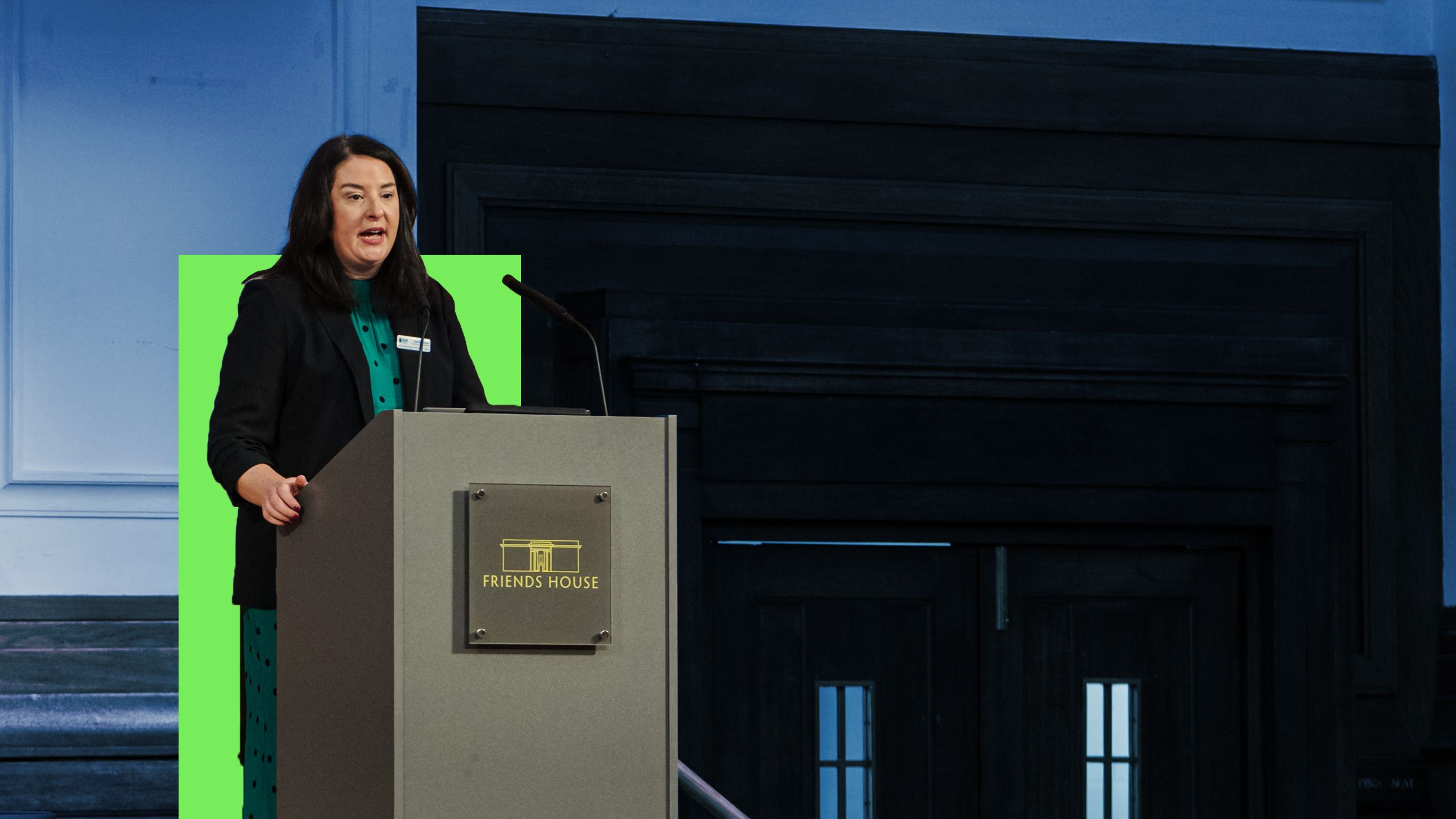
What is the role of the TUIR team?
The job of the SoR’s TUIR team is to represent members in a trade union capacity. Its responsibilities range from heading up pay negotiations to campaigning for safer working conditions for members.
Though members may not perceive the link between the TUIR and other areas within the SoR (“that’s because professional and trade union issues are pretty common”, Richard adds) they can still reap the benefits of the workplace advice and protections offered by the society’s trade union arm.
SoR reps are elected by members and reside under the umbrella of the TUIR. Reps cover three areas: industrial relations, health and safety, and union learning. According to Dean, “the reps are the walking embodiment locally of the SoR – not just in what they do, but how they do it. Without our reps, we literally as well as metaphorically wouldn’t be anywhere. We’re extraordinarily lucky, partly because of the structures that we have, which as I say don’t have barriers to engagement.”
The SoR employs regional and national officers to tend to the 11 regions and nations designated by the society, which is how the body is organised throughout the UK. These officers subsequently advise and support reps and members.
Some SoR officers have additional strengths on top of their workplace representation skills. For example, all IR officers have legal knowledge and expertise that allows them to represent and advise members, some of whom then take representations all the way to Health and Care Professions Council hearings.
“We don’t organise in a traditional branch model, we organise on a model that’s workplace-based but is also interest group and network-based,” Dean explains. “We have new professional representative networks that are more fluid – we’re building and developing those. Our regional and national officers also lead in those networks and, again, Leandre and I manage and support the development of that.
“Some of our networks are new and some are quite well established, but we are looking to develop all of them as spaces where members come together with peers for us to listen, share and then develop our support and campaigns.
“The TUIR team do the practical bargaining and the practical representation and also act as the coordinators of all of those listening exercises that we do with members, including recruitment and meeting in the recruitment and retention space.”
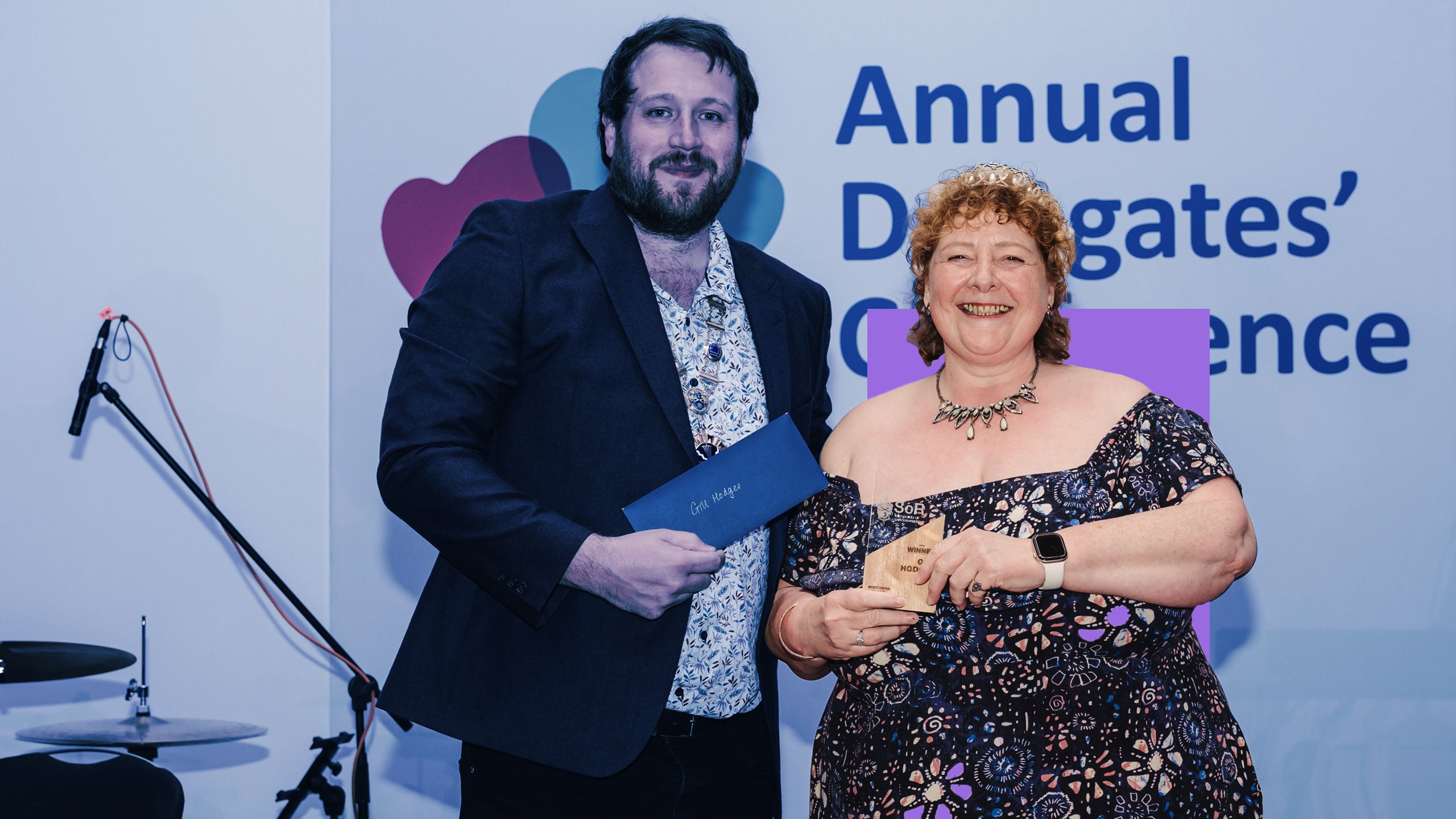
View from a rep
SoR rep Gill Hodges has been heavily involved with the SoR for a number of years – so involved in fact that she was the society’s president for the 2019-20 year, a historically difficult time for the health service thanks to the Covid pandemic.
Nowadays, Gill is a Northern Ireland rep, working in the Belfast Health and Social Care Trust as a Therapeutic Radiographer. “I think it’s a great mix that we have with the professional side and the trade union side working in synergy with each other,” she says. “You want to be a member of a union that understands your role as well, and as a member of the Society of Radiographers you have that – you have the professional side and you have the trade union side as well.”
At the recent Annual Delegates Conference – held in April – Gill was awarded Rep of the Year for Northern Ireland. Though it was an unexpected accolade, she explains that recognition like this is key to validating the hard work of reps, which can often go unnoticed. “It was a great honour,” she says. “It was totally unexpected. It was lovely to be able to be nominated from my peer group… to be recognised for the work that we do.
“Trade union reps are volunteers, and so sometimes they don’t get the acknowledgement for the amount of work they do during tea breaks, during lunch breaks, on behalf of the members. These awards are a lovely way of recognising the hard work that volunteer reps actually do.”
Why is the TUIR important?
We’ve looked at the SoR’s history as a trade union, as well as the workings of the TUIR team and reps. One question remains: why is the TUIR team and its work important for members?
As an integral part of the team make-up, reps represent so much of the SoR membership. Supporting reps allows them to feed back membership wants and needs, which can be taken into consideration and actioned by the TUIR team. This means the team can tailor and prioritise its aims, says Dean, ranging from pensions to pay to housing support for new professionals or those moving into the country. “From that intelligence and that information and that energy that we get back, we then are able to use that in effective campaigning, both collectively and in effective representation.”
For Richard, the support offered by the TUIR make-up and the reps within it is invaluable for members, and represents so much of what the society stands for: supporting radiographer professionals and their colleagues. “In the workplace, I think it’s important that members feel that they have the support that they need when they need it,” he continues. “Fortunately, many members will go through their entire career without needing to face a disciplinary or to raise a grievance. But if that happens, then access to a representative, advice and support from your union is really crucial in taking that forward.
“A rep is a gateway to everything the Society of Radiographers offers, and is able to provide that advice and support one to one, as well as arrange for more specialist advice from an officer should a member need it. I think the trade union function is important for all members.”
More about the TUIR team
The TUIR team deals with trade union issues on behalf of SoR members, such as pay negotiations and job security. National and regional officers are managed by the TUIR team and can provide more specialist support for members if needed.
To learn more about the SoR’s position as a trade body, click here. To read more about how to become a rep, or to access resources for reps, click here.
Read more


